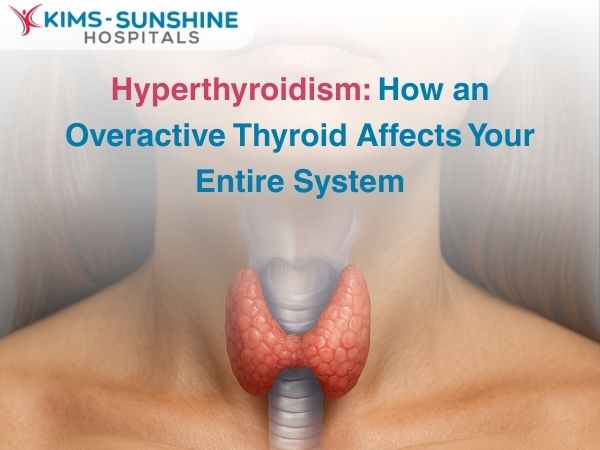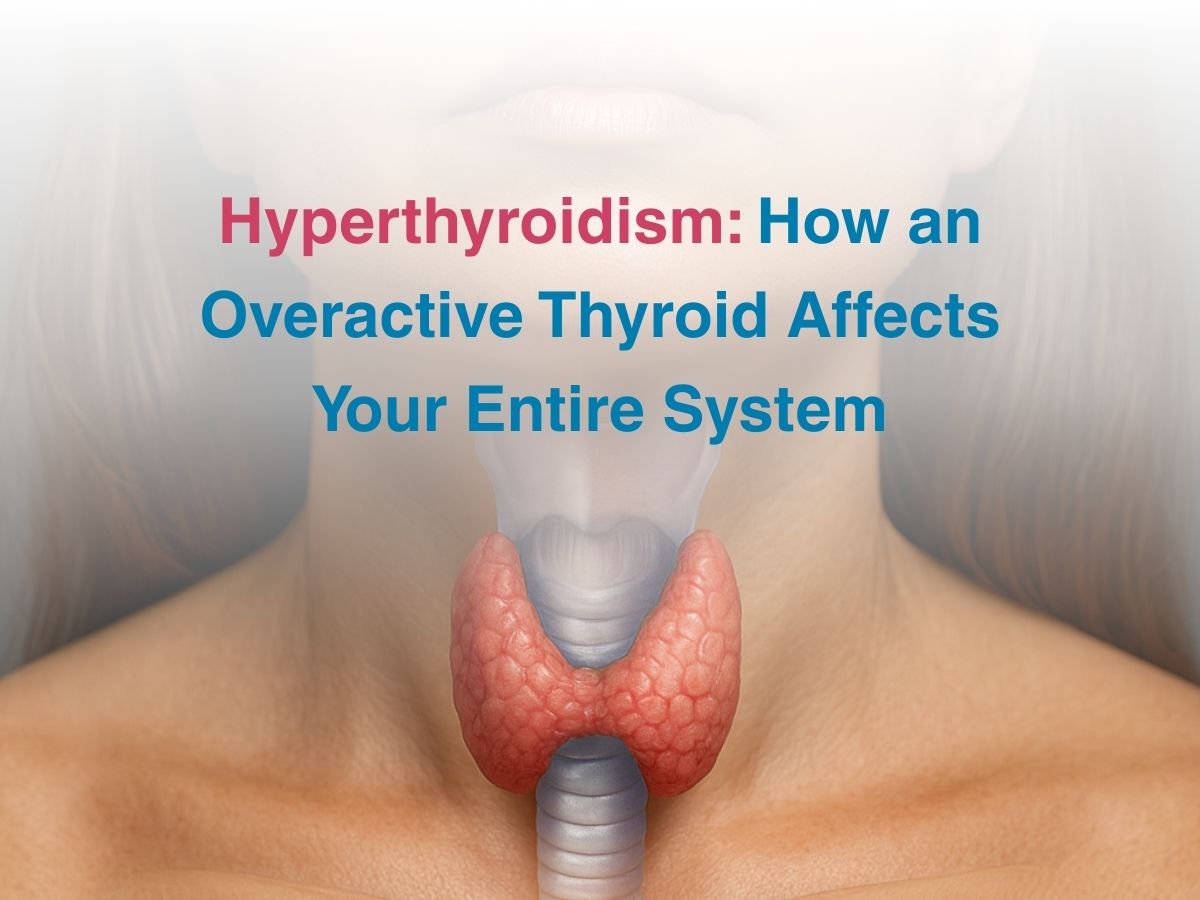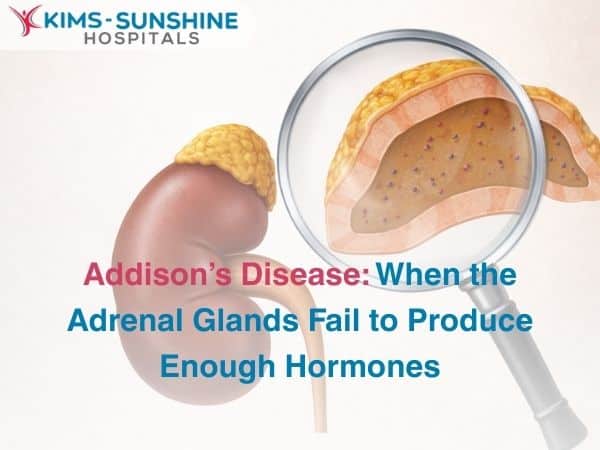
Hyperthyroidism: How an Overactive Thyroid Affects Your Entire System

Hyperthyroidism is an endocrine disorder that affects the thyroid gland, making it produce excessive T3 and T4 hormones. This condition is called overactive thyroid, which in turn accelerates metabolism. Thyroid disorders are the most commonly affecting conditions that have been seen in the last few decades. The prevalence of hyperthyroidism is generally considered lower than hypothyroidism in India and is estimated to affect about 2% of the population. This condition is also called Graves disease as it was first described by Robert Graves. He discovered its autoimmune nature- where the immune system damages an individual’s thyroid gland, rendering it hyperactive in the end.
Hyperthyroidism
Hyperthyroidism is a condition wherein high levels of T3 and T4 hormones enter the blood, triggering all functions to work at a higher pace. This high metabolic activity can lead to weight loss, weakness, anxiety etc.
Symptoms Of Overactive Thyroid
Hyperthyroidism in initial stages may mimic other health issues and can be difficult to diagnose. Some known common symptoms are:
- Weight loss even without trying
- Fast heartbeat, tachycardia
- Irregular heart rate called as arrhythmia
- Heart palpitations
- Increased huger
- Anxiety, nervousness and irritability
- Tremors, which are commonly seen in hands and fingers
- Unusual sweating
- Irregular or frequent menstrual cycles
- Increased sensitivity to heat
- More frequent bowel movements
- Tiredness
- Weak muscles
- Sleep problems like insomnia
- Warm and moist skin
- Thinning skin
- Fine and brittle hair.
Complications: Disturbed cardiac functions like arrhythmias causing cardiac stroke, congestive heart failure, brittle bones, vision problems like bulging eyes and may also cause vision loss. In rare conditions, a thyrotoxic crisis can happen, which is also called a thyroid storm, that can be severe and life threatening.
Causes Of Hyperthyroidism (Graves’ Disease)
- Graves’s Disease is an autoimmune disorder that causes the immune cells to attack and destroy the thyroid gland, leading to excessive release of T3 and T4.
- Over active thyroid nodules – Here, the condition is called toxic adenoma or multi nodular goitre, where a benign tumour can cause hyperthyroidism.
- Thyroiditis: When thyroid gland gets inflamed due to various reasons like in an auto-immune disorder, this can cause a surge in the production of T3 and T4 hormones.
Some risk factors like familial history of thyroid disease, a personal history of pernicious anaemia and adrenal insufficiency can also be a cause of hyperthyroidism.
Diagnosis Of Hyperthyroidism (TSH, T3, T4 Tests)
The most common diagnostic procedure used to identify a malfunctioning thyroid is through a blood analysis- called a thyroid function test, which measures levels of TSH, T3, T4 hormones. Other tests may also be recommended but this one is most often used and is highly accurate.
Treatment Options For Hyperthyroidism
Treatments include anti-thyroid medications that last for 12 to 18 months. Once there is improvement in symptoms, the medicine is gradually withdrawn. If symptoms are associated with cardiac complications, then beta blockers may be given. Radio-iodine therapy helps in shrinking tumours and slows down thyroid activity. As a last resort, thyroidectomy is done if the patient does not respond to any kind of treatment.
Diet And Lifestyle Tips For Thyroid Health
Consuming a balanced diet rich in iodine, selenium and zinc helps in managing thyroid levels and its production. Other factors that manage endocrinology functions are sleep and exercise. Consume whole foods, leafy greens, fish and dairy products along with proper hydration. Highly processed foods, excessive sugars and raw goitrogenic foods like cruciferous vegetables- namely cauliflower, cabbage should be avoided.
Conclusion
The thyroid gland, situated in the throat, is a butterfly shaped organ that releases tri-iodo-thyronine (T3) and thyroxine (T4) for all metabolic functions of the body to run smoothly. Thyroid hormones are the reason that every action, function and cell works precisely. But, over production of this hormone leads to hyperthyroidism, a dangerous endocrinological disorder that affects all major functions of the body. The causes of this abnormality are multi-factorial, but most commonly it is seen as an autoimmune condition called Graves disease. Most of the endocrine disorders can be corrected with proper adjustments in lifestyle and diet along with medications which can promote quicker healing in the long run.






